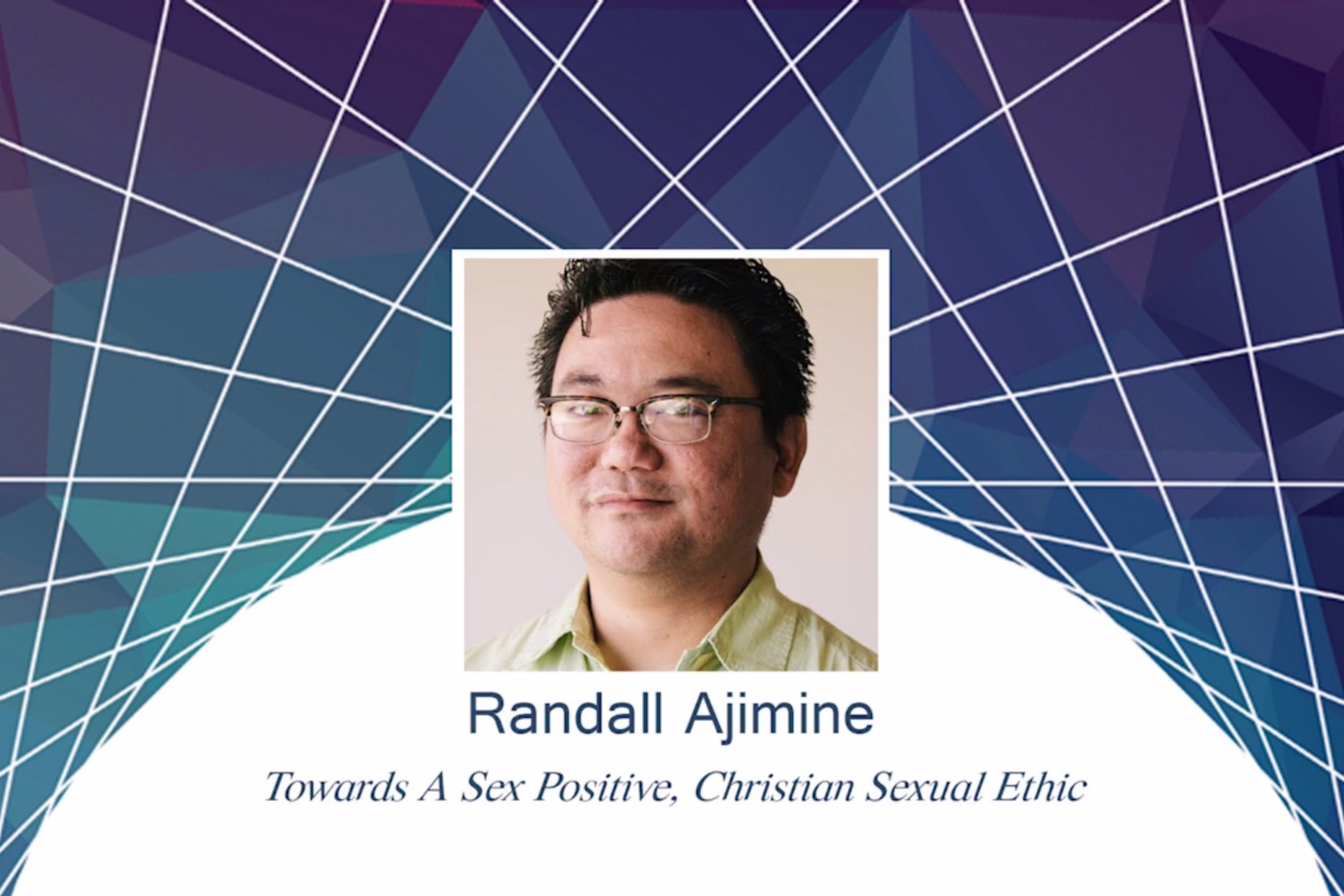Last October, we hosted the first annual Symposia: An Intersection of Conversation & Innovation, a forum in which alumni of The Seattle School presented the ongoing work they are pursuing at the intersection of text, soul, and culture. Integrative education does not end at graduation, and our alumni are proof of that. Symposia highlighted the ways that Seattle School alumni are continuing to wrestle with big questions and big dreams in theology, psychology, and culture.
This week, we’re featuring a presentation by Randall Ajimine (MDiv, ‘13), “Towards a Sex Positive Christian Sexual Ethic: Theology, the Church, and Dealing with the Deeds.” Randall traces historical, cultural conceptions of marriage to argue that a major shift has taken place in the last few hundred years, and the church has not caught up. He argues that much of the evangelical literature around sex and purity offers a thinly veiled version of arranged marriages, with God acting as the patriarchal matchmaker, developing a sexual ethic that in “arbitrary and unexamined ways that are ultimately unhelpful.”
“This disconnect goes a long way toward explaining why we have such a hard time talking about sex, dating, marriage, and relationships in an open and honest way in the church,” says Randall. “But I also believe that there’s a way to bridge this gap.”
Pulling from a variety of sources, including the second part of Jesus’ Great Commandment, Randall proposes a Christian sexual ethic that refuses the alienation of ourselves from our bodies, restores the ancient conception of betrothal, and integrates the fundamental emphasis on consent that has grown out of the sex positive movement.
Randall ends with a plea to The Seattle School community, arguing that this work requires expansive imagination and the integration of a variety of practices and perspectives. “As a school poised at the intersection of theology and psychology, [The Seattle School] is uniquely suited to do the work of bridging this gap,” he says. “If this work is to be done well, it will have to be an interdisciplinary endeavor. The church is eager for real, relevant guidance, and I believe The Seattle School can point the way.”

